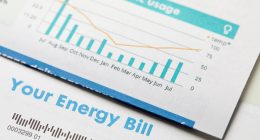WORKERS in range of every day jobs like teachers, nurses and electricians could soon face a higher tax bill.
New research has found that one in five taxpayers will be dragged into the 40% rate by 2027.
An estimated 7.8million people in total will soon pay the higher rate of tax, according to the Institute for Fiscal Studies (IFS).
The basic rate of income tax (20%) currently kicks in on earnings over £12,571, and the higher rate of 40% at £50,271.
Although, it’s the portion of your salary over each bracket taxed at those amounts, rather than your whole income.
Typically, it tends to be high-earning professionals like lawyers and doctors that face higher tax rates.


But experts at the IFS say there will be a “seismic shift” and that many more everyday jobs will be pushed into the higher bracket by the 2027-28 tax year.
One in eight nurses and one in four teachers are set to be hit with bigger tax bills, when previously they were in the basic tax band.
That’s because of a six-year freeze to the income tax allowances and thresholds
While taxes don’t go up, more people are eventually pulled into higher rate bands as a result of rising wages over time.
Most read in Money
This is known as fiscal drag.
Usually, though not always, the bands increase each year so that people can earn more without being taxed more.
The freeze was initially set to end in 2026, but Jeremy Hunt extended it so the £50,271 higher rate threshold will remain in place until 2028 .
Isaac Delestre, of the IFS said: “Higher-rate tax has gone from something reserved for the very richest to something a much larger proportion of adults can expect to encounter.
“The freeze to thresholds is supercharging that process, pulling an additional 2.5million more people into paying rates of 40% or more by 2027–28.”
Nurses and teachers are not the only ones set to be affected, electricians and machinists are also among those set to be pulled into the higher tax bracket.
In the early 1990s only around 5% to 6% of people in these professions and among the highest paid were higher rate taxpayers.
By 2027–28 that will rise to more than one in six machinists and one in five electricians.
Police officers and architects are also expected to pay more, the IFS predicts, and around half of surveyors and legal professionals are expected to be affected.
Here is the full list of jobs identified at risk:
- Teachers
- Nurses
- Machinists and fitters
- Electricians
- Architects and surveyors
- Legal professionals
- Police officers
It’s important to note that other professions could be affected but the IFS chose these occupations because the sample size is big
enough.
Plus the nature of the jobs has remained largely unchanged over time.
Other workers could be affected too as well as pensioners, who could start paying tax if they get enough from their pension.
The state pension could rise to over £11,000 a year in 2024 – nearing the £12,570 a year tax-free personal allowance.
How to avoid paying too much tax
To avoid paying too much tax, it might be useful to try a salary sacrifice scheme.
This is where the government will let you give up a portion of your salary and spend it on certain things free of tax.
It could include pensions, childcare vouchers and bike-to-work schemes.
You don’t pay tax on the portion of your wages that goes towards paying for these schemes, lowering the amount of income tax you pay overall.
Contributing to your pension could be another way of bringing you back below the higher rate tax threshold.
For instance if you earned £51,271 – £1,000 over the higher rate band – you could put that amount into a pension instead, pushing you back down into the 20% rate.
But remember that if you do this it means you are taking home less pay as you’re saving the money for retirement instead.
Also, it’s important not to let stealth tax get in the way of crucial government payments.
For example, millions entitled to child benefit are missing out on more than a £1,000 a year because of a stealth tax.
It’s thought many have stopped claiming over fears they will be hit with the High Income Child Benefit Charge.
This tax means parents have to repay some or all of the benefit if they or their partner earn more than £50,000 a year.
However, you can still claim and opt out of receiving payments to build up National Insurance contributions which are used to calculate your State Pension entitlement in retirement.
You need 35 years of NI contributions for a full state pension.
Those who take time away from work to look after children could have years where they don’t pay enough National Insurance to count towards the state pension.


This is why it’s important to claim child benefit even if you opt out of payments.
For more information on income tax and how it affects you, see our handy explainer.
Do you have a money problem that needs sorting? Get in touch by emailing [email protected]










